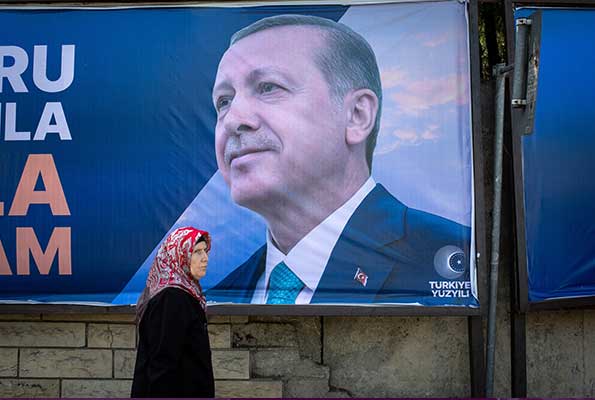As Turkey continues to battle the raging inflation, which skyrocketed to nearly 48% in July 2023, the country’s central bank surprised the markets and analysts by raising the interest rate to 25%.
The hike of 7.5 percentage points followed a rise to 17.5% from 15% in July 2023. This monetary rate revision has defeated the predictions of the experts, who expected the central bank to increase its policy rate to just 20%.
“Recent indicators point to a continued increase in the underlying trend of inflation,” the central bank told the media, while announcing the move.
“Monetary tightening will be further strengthened as much as needed in a timely and gradual manner until a significant improvement in the inflation outlook is achieved,” it added further.
The Turkish lira gained quickly, as it immediately went up 1.5% against the dollar as the bank announced its intention to step up its inflation fight, apart from supporting the currency.
Capital Economics analyst Liam Peach told Aljazeera that the rate increase was “much larger-than-expected and will go a long way towards reassuring investors that the shift back to policy orthodoxy is on track”.
President Recep Tayyip Erdogan’s previous monetary policy, which used to keep interest rates low, was reportedly unpopular among economists and market analysts. However, after winning the May 2023 election, he has brought market-friendly faces to his government, apart from reversing the earlier monetary policy and hiring 41-year-old former Wall Street corporate banker Hafize Gaye Erkan as the new governor of the Central Bank of Turkey.
Erdogan also named three new policymakers, Osman Cevdet Akcay, Fatih Karahan and Hatice Karahan, to the bank in July.
Under Erkan’s leadership, the central bank has ensured its battle against inflation since June 2023. Talking inflation, it peaked at an annual rate of 85% in October 2022, cooled down briefly and is on the rise once again.
Turkey recently allowed the lira to start depreciating against the dollar in a bid to ease pressure on the depleted state exchequers. The currency, because of this, touched its all-time lows almost daily in recent weeks. However, with the interest rate hike now, the Turkish currency has reached its strongest level against the dollar since mid-July.
The central bank’s policy committee has reiterated that the institution would tighten its monetary policy “as much as needed in a timely and gradual manner.” The rate hike is part of the technical steps aimed at balancing the overall economy and restoring the trust of both consumers and foreign investors.
Erdogan has now pushed the nominally independent institution to slash borrowing costs out of a lifelong belief that high-interest rates cause, rather than cure, inflation, claimed the Aljazeera report.
However, Erkan and Finance Minister Mehmet Simsek were advocating a more go-slow approach during the months of June and July to restore market confidence without causing too much short-term pain.
However, July’s annual inflation rate soared back to 47.8% due to the billions of dollars in social spending Erdogan spent during his election campaign. The central bank now expects the annual inflation rate to peak at 60% between April and June of 2024.
“There remains a large gap between the policy rate and both current and expected inflation,” ING bank’s chief economist Muhammet Mercan warned.



